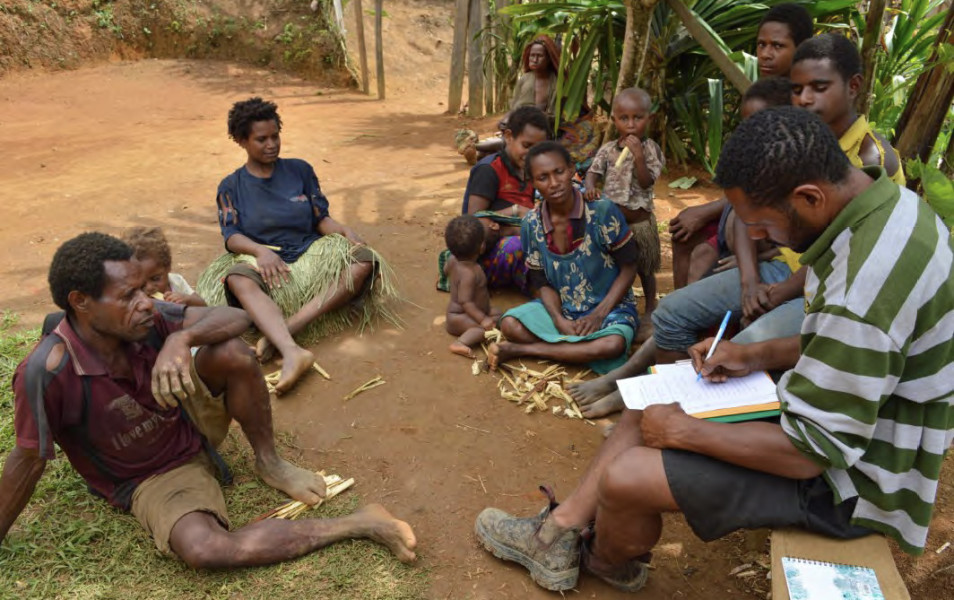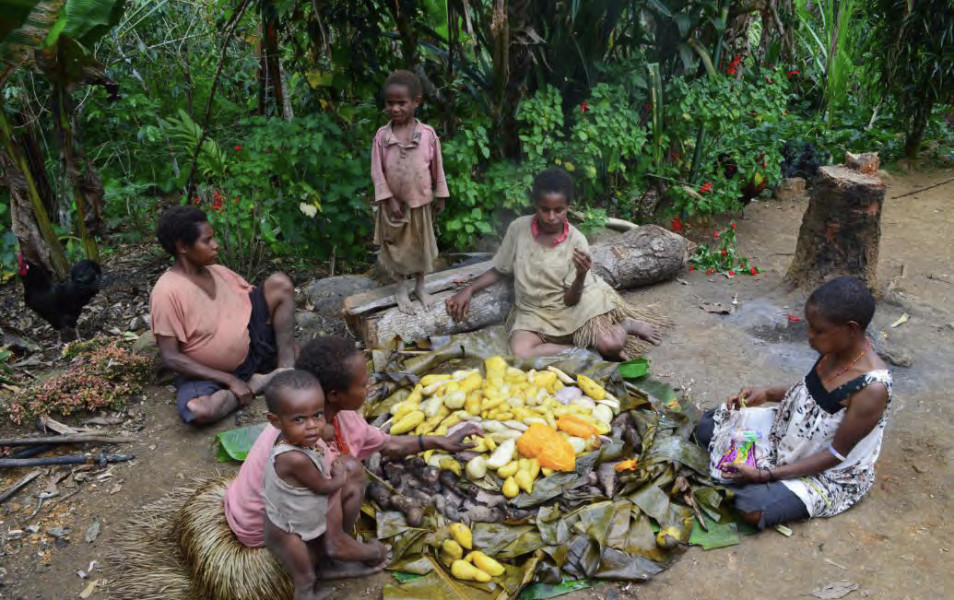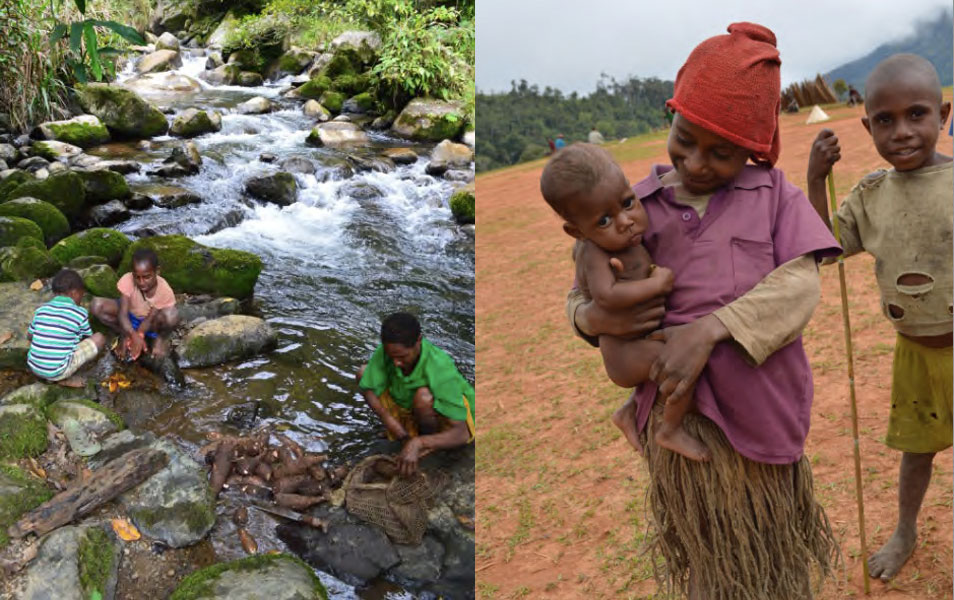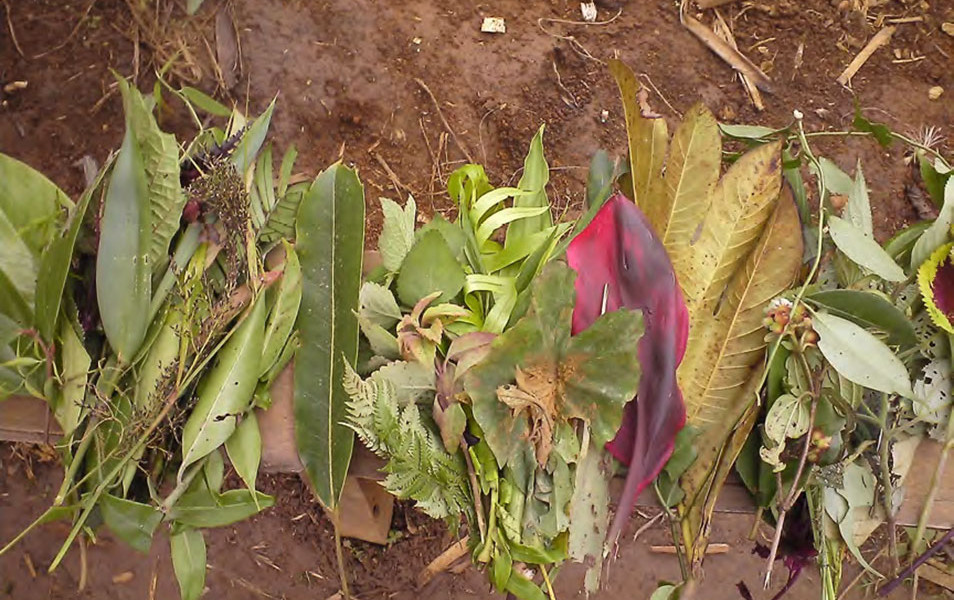In 2015, the Wildlife Conservation Society and the Research Conservation Foundation of Papua New Guinea, organizations specializing in culturally centered conservation education, were brought in to identify the country’s most pressing health issues and develop solutions.* Focusing on the remote communities of Gulf Province, the project staff, led by anthropologist and DefCult collaborator Shannon Randolph, incorporated user-centric design methods in their work to find solutions.
The Challenge
A critical issue among members of the population of Souwi Valley was the rate of tropical ulcers and diarrheal diseases that were killing people unnecessarily. Through interviews with those living in small villages across the valley, the researchers learned that hygiene was not part of the culture, apart from Sundays, when they went to church. Water was not accessible in homes and, more importantly, was withheld for important cultural reasons.
Prototypes for Change
To affect change that could ultimately save lives, the team realized any solution must respect and incorporate ingrained customs. Ultimately, a two-pronged initiative was developed that focused on instilling new cleaning rituals with and without water. The team worked with schoolchildren to craft songs that communicated a new tradition of splashing clean in the stream, every time you crossed water. They also identified culturally acceptable alternatives to washing such as using fresh leaves near the house to rub hands clean before eating.
Including cultural heritage in these initiatives was critical to ensuring the Souwi Valley people would respond openly to suggested changes to ingrained customs. With that in mind, the team worked in partnership with a local organization to craft new school curricula that incorporated important uses of water, flora and wildlife.
This project is currently in process.
*A part of the overall work for which the organizations were engaged.



